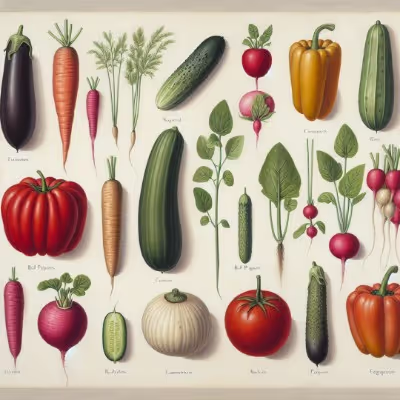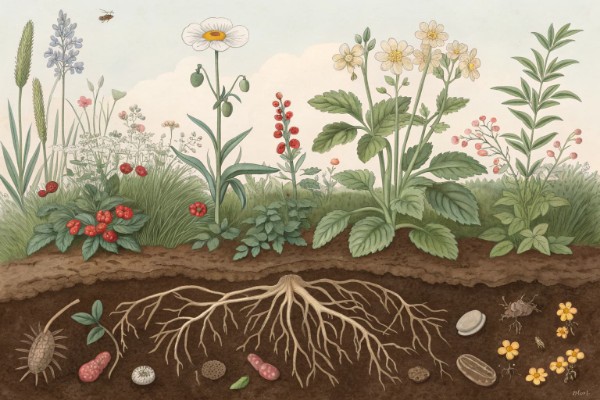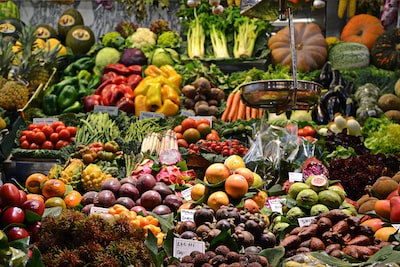Compost and Maggots: How to Handle Them in Your Pile
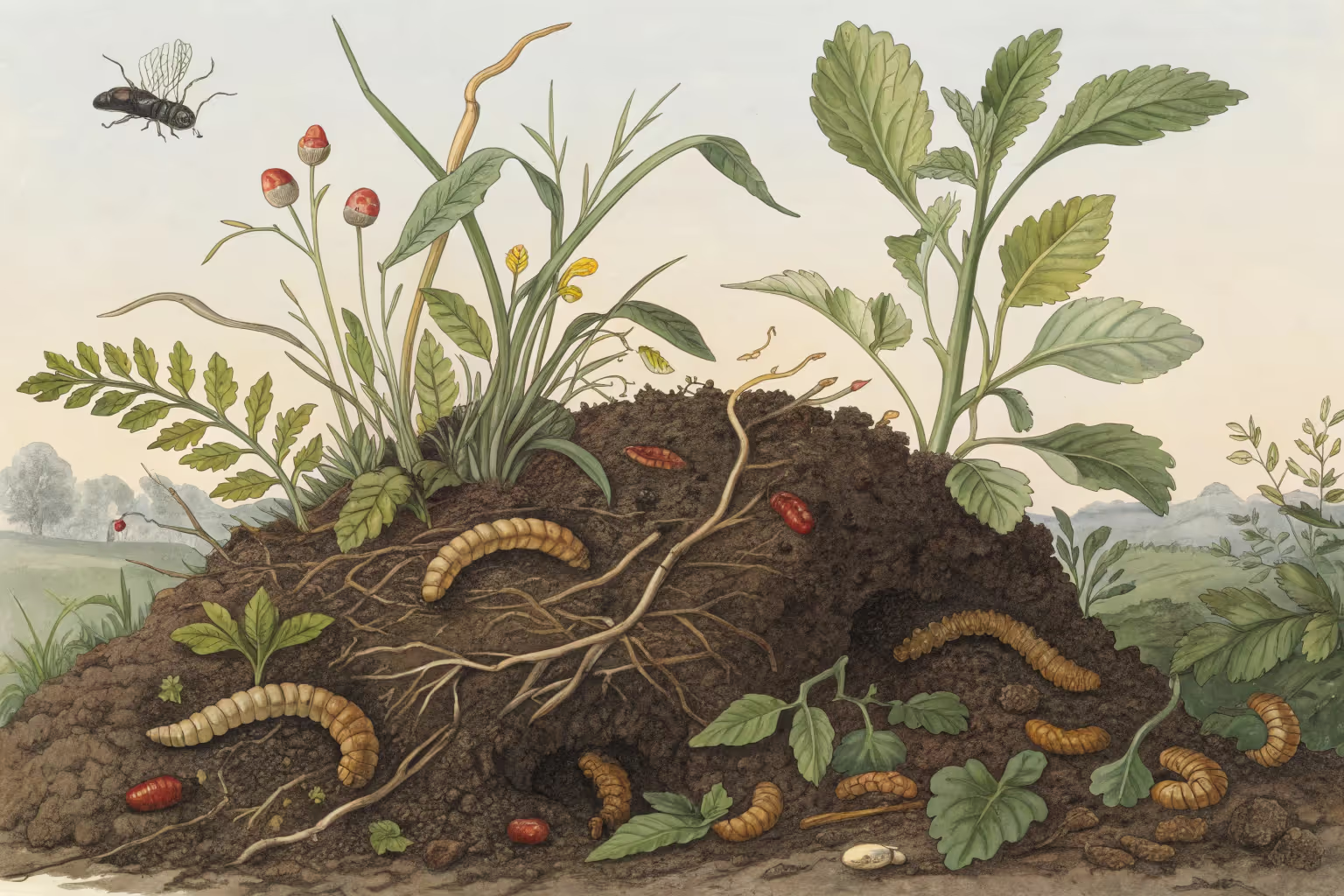
Compost and maggots
Found compost and maggots mingling in your backyard tumbler? Hold off panic—those wriggly larvae actually speed up decomposition and signal a thriving heap. But if maggot colonies overstay their welcome, a simple rebalance restores compost harmony without chemical intervention. Curious about managing these squirming allies? Let’s sort this out.
Cheatsheet: Managing Maggots in Compost Efficiently
🪱 Why Maggots Appear
Fly larvae, usually black soldier fly, thrive in wet, nitrogen-rich compost. Up to 10,000 maggots can hatch in a single pile.
📝 Risks & Benefits
- Harmless to humans and plants
- Maggots accelerate breakdown of food waste
- Excess = bad odor, imbalance, attracts pests
🌡️ Adjust Pile Balance
- Add carbon-rich browns: dry leaves, shredded paper, straw
- Mix well to improve aeration
- Target temp: 130-150°F / 54-66°C to deter maggots
🔒 Prevent Maggot Surges
- Bury food scraps 8"+ (20cm) deep
- Always cover with browns after adding scraps
- Avoid adding meat, dairy, oily foods
- Use a secure lid or fine mesh to block flies
🛠️ Tools and Products You’ll Need
- Pitchfork or shovel (turning, mixing)
- Compost thermometer (monitor heat)
- Gloves
- Dry browns: shredded cardboard, straw, leaves
- Fine mesh or lid (if open bin)
♻️ Steps to Remove Excess Maggots
- Remove top 4-6in (10-15cm) of material where maggots cluster.
- Add 2-3in (5-8cm) dry browns to absorb moisture.
- Turn pile thoroughly—oxygen limits maggot growth.
- Monitor temperature; raise by adding more greens if below 130°F/54°C.
- Secure pile with lid/mesh to block flies.
- Use removed maggot-rich compost as chicken feed or bury elsewhere (optional).
🌱 Self-Sufficiency Perk
Maggots convert waste to compost 2x faster; soldier fly larvae are 94% protein—sustainable animal feed or chicken treat.
Compost and maggots: what you’re actually seeing
I hear from readers in midsummer: the lid pops open, the pile writhes, and breakfast tries to crawl away. I’ve been there, after a melon frenzy and a week of rain.
Compost and maggots usually means you invited larvae to a buffet, and they RSVP’d fast. That’s a signal, not a catastrophe.
Meet the usual suspects
Black soldier fly larvae (BSFL) look ribbed, gray-brown, and torpedo-shaped, with a tough skin and bulldozer attitude. They churn food scraps, cut odor, and produce a nutty, earthy frass that plants like.
Housefly larvae show up pale and smooth, pointy at one end, quick to sour a pile and annoy neighbors. I try to evict them first.
What maggots really mean for your pile
Larvae signal high nitrogen, high moisture, and low airflow. In other words, a wet salad without croutons.
Add structure, air, and carbon, and the wriggle party slows or shifts to a cleaner crew.
Five ways to handle them, depending on your goal
1) Lean in and farm BSFL
If food waste volume drives you wild, BSFL can reduce it by half in days, then graduate to feed for chickens or fish. I run a side bin for them by summer, feed it melon rinds and coffee pucks, and keep the main pile on a hot path.
Use a shallow, ventilated bin, steady moisture, and a ramp exit so prepupae self-harvest. Keep meat and dairy here if you want, but bury it well.
2) Cool the larvae, keep the compost
Cap every fresh addition with 3 to 4 inches (7.5 to 10 cm) of carbon cover material like shredded leaves, sawdust, or corrugated cardboard. That simple move starves flies of access and knocks back odor.
Turn the pile hard, then mix in coarse browns like wood chips for airflow. I add a scoop of biochar or zeolite to bind ammonia and keep pH steady.
3) Go hot and reset the biology
Build to a thermophilic 131 to 160 F (55 to 71 C) window by balancing your C:N ratio near 25 to 30:1, chopping scraps small, and aerating daily the first week. A hot core outpaces larvae and knocks down weed seeds.
Use a 20 to 24 inch (50 to 60 cm) probe thermometer and track the core, not the edge. If temps sag, add greens in a checkerboard pattern and more structure, then turn again.
4) Segregate streams
Keep a clean, hot pile for garden-bound compost and a separate BSFL bin for the funky stuff. I tip seafood shells and greasy pizza box strips into the BSFL bin, never the hot pile.
This split workflow gives me stable compost fast and protein for the hens without cross-contamination.
5) Seasonal and indoor tactics
In winter, larvae fade while the pile cools, so I switch to tighter cover materials and a thicker cap of leaves. Indoors, a worm bin needs defense tactics.
For vermicompost, pause feeding, add dry bedding, and lure larvae up with a melon rind under bright light, then scoop them out. A breathable fabric lid helps.
Identification cheat sheet
- BSFL: ribbed armor, brown to gray, slow roll, dry earthy smell, adults look like wasps and do not visit your sandwich.
- Housefly larvae: white to cream, smooth, fast squirmers, sour smell, adults show up at the picnic uninvited.
Field notes from hot, wet summers
One July, the pile went quiet, then erupted after a mango binge and a thunderstorm. I layered four buckets of shredded maple leaves, worked in two buckets of wood chips, and turned daily.
On day three, the core hit 150 F (66 C), steam rose, and the larvae thinned out like a bar closing at midnight. The finished compost cured clean, no off smell, seedlings loved it.
Moisture, air, and feed rate: the control knobs
Aim for 50 to 60 percent moisture; the squeeze test should yield one to two drops from a fistful. If it drips, add browns and turn.
Feed rate matters. I bury scraps 6 to 8 inches deep (15 to 20 cm), in pockets, then cap with carbon so flies can’t find them.
Safety, pets, and poultry
BSFL are generally safe and reduce odor-producing compounds, while housefly larvae can vector bacteria around the bin area. I keep food surfaces far from the compost zone and wash tools.
Chickens relish BSFL; mine patrol the BSFL bin ramp like bouncers. Do not feed larvae if your pile includes herbicide-treated grass clippings or any pesticide residues.
Quick fixes by scenario
- Wet, smelly, lots of larvae: add 2 parts dry leaves or shredded cardboard to 1 part wet scraps, turn, then cap with 3 inches of fines.
- Cool and slimy: fork in coarse wood chips for porosity, then rebuild the pile to at least 3 by 3 by 3 ft (0.9 by 0.9 by 0.9 m).
- Fruit fly cloud: freeze fruit scraps overnight, then bury and cap; add a tight carbon blanket after every feed.
- Maggots in a worm bin: remove old feed, add 2 inches (5 cm) of dry bedding, harvest worms to a new bin if needed, and let the old bin finish cold.
Gear I trust for managing Compost and maggots
- Compost thermometer: 20 to 24 inch stainless probe for core temps.
- Aeration tool: a corkscrew-style turner that lifts without collapsing structure.
- Carbon stash: lidded bins of shredded leaves, sawdust, or torn cardboard within arm’s reach of the pile.
- Breathable cover: fitted fabric or perforated lid to cut access while allowing airflow.
- Bokashi pre-composter: ferments gnarly kitchen waste that you then bury deep in the hot pile.
- BSFL unit: sidecar bin with a ramp and collection cup for self-harvested prepupae.
Numbers that guide my hands
US EPA Process to Further Reduce Pathogens guidance sets 131 F (55 C) or higher for 3 days in aerated static piles, and 131 F for 15 days with at least 5 turnings in windrows. This time and temperature pairing resets a pile’s biology.
I’ve mapped those targets in backyard piles by balancing particle size and airflow, not by overfeeding greens. A small pile can reach 140 F (60 C) if you resist the urge to waterlog it.
Cornell Waste Management Institute teaches a target C:N of about 25 to 30:1 and moisture near 50 to 60 percent, with the squeeze test as the simplest field check.
Those two numbers prevent most maggot blowups. They also speed curing so your compost screens clean.
Extension sources on black soldier fly note adults do not feed, rarely enter homes, and larvae can reduce food waste mass by 50 to 80 percent, depending on substrate and temperature.
I see the high end of that range in July at 86 to 95 F (30 to 35 C) with steady loading and a dry carbon cap. Below 68 F (20 C), their pace slows, so the hot pile takes the lead.
Are maggots a problem or a tool?
Both answers can be true, and your goals decide. If the bin smells sweet and earthy, your plants will forgive a few grubs.
If the lid opens to a sour sauna, switch to hot protocol, feed slower, and lay down that carbon blanket. The biology will follow your lead.
Smart add-ins that actually help
- Biochar: charges with compost tea or urine first, then mix at 5 to 10 percent by volume to buffer moisture and odor.
- Zeolite or crushed charcoal fines: binds ammonium, reduces ammonia burn, keeps neighbors friendly.
- Coarse wood chips: the scaffolding that keeps air channels open under wet loads.
Commercial side notes gardeners ask me
- Bagged browns worth buying: kiln-dried pine shavings or clean sawdust when leaf bins run empty mid-summer.
- Bins that repel flies better: tight-lidded tumblers with internal fins, paired with a leaf bin for carbon, produce fewer larvae if you cap every feed.
- BSFL kits: choose ones with a wide feeding tray, a simple ramp, and easy cleanout. Don’t overcomplicate it.
Cross-pollination with the rest of the garden
I park the BSFL bin near the chicken run so escapees become breakfast on their terms. The hot pile cures near the potting bench so I can cut compost with sand for seed blocks.
Every system feeds another system. Compost and maggots, handled with a steady hand, turn kitchen chaos into plant vigor and poultry protein without drama.
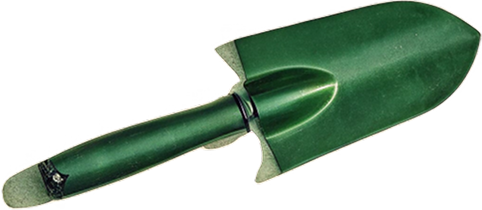
Want smarter plant choices? 🪴
Frequently Asked Questions About Compost and Maggots
Are maggots harmful to my compost pile?
No need to recoil—those squirming larvae are actually beneficial. Maggots voraciously break down organic matter, accelerating compost decomposition. But keep an eye on their population; excessive growth may signal an imbalance.
Why do maggots show up in compost?
Your bin's likely hosting maggots due to an abundance of moisture and nitrogen-rich food scraps, especially meat, dairy, or greasy items. Restrict these inputs, balance with carbon-rich browns, and they'll quickly thin out.
How can I reduce maggot numbers naturally?
Turn your compost frequently to reduce moisture and amplify airflow. Layering dry materials such as leaves, straw, or shredded cardboard can suppress maggot-friendly conditions, shifting your pile toward a healthier, less hospitable environment for larvae.
Should I remove the maggots manually?
If maggot numbers spike dramatically, hand-removal isn't mandatory—just redistribute contents evenly, integrating dry browns generously. Birds eagerly feast on larvae, so spreading compost thinly outdoors invites nature's cleanup crew.
Can maggots spread disease from compost?
Relax; these compost maggots rarely pose health risks. Yet prudence dictates caution: always wash hands thoroughly after handling compost, and avoid placing maggot-infested compost directly onto edible plants close to harvest.
What attracts fewer maggots: enclosed or open compost bins?
An enclosed bin, fitted securely with a lid, naturally discourages fly entry and subsequent maggot colonization. Open heaps or uncovered setups act like an open buffet, inviting flies to lay eggs. Consider container style carefully, according to your tolerance for compost maggot visitors.
Compost and maggots might sound like a bad recipe, but in truth, they’re part of the dance that turns scraps into black gold. Maggots—especially from black soldier flies—break things down fast, bringing heat and muscle to your pile. If their numbers swell beyond comfort, dial back on wet kitchen waste, bury fresh scraps, and stir in dry browns. Keep a lid on odors and you’ll attract earthworms instead of a maggot parade. In the end, good composting is about balance—not too wet, not too dry, and just the right mix of ingredients.
Let compost and maggots work for you, not against you. Stick to simple rules, trust the process, and watch waste turn into something your garden will love. Hungry for more tips? Check out what to do with excess cooking liquids as plant fertilizer—your pile, and the plants it feeds, will thank you.
Pro Tips: Managing Maggots Effectively for Healthier Compost
Optimal Moisture Levels
- Maintain compost moisture between 40-60%—similar to a damp sponge—to inhibit maggot overpopulation.
- Excess dampness attracts flies, leading directly to maggot increase.
Temperature Control and Maggot Management
- Sustain temperatures at 135-160°F (57-71°C) to quickly reduce maggot presence.
- High heat provides fast decomposition, killing fly larvae effectively within 2-3 days.
Natural Predators and Biological Balance
- Encourage birds by placing simple perches near compost bins—they feed predominantly on larvae found within compost.
- Attract beneficial insects—such as soldier beetles—to naturally regulate fly larvae populations.
Beneficial Maggots: Soldier Fly Larvae Advantages
- Black soldier fly larvae break organic material into compost at rates up to twice as fast as earthworms.
- Contain high calcium and protein (approx. 42% protein, 35% fat), serving as nutritious chicken and fish feed.
- Reduce pathogen presence by suppressing harmful bacteria through competitive exclusion.
Easy DIY Maggot Repellent Spray
- Mix 1 cup (240 ml) white vinegar, ½ cup (120 ml) water, and 15 drops eucalyptus or peppermint essential oil.
- Spray bin edges and compost surface weekly to deter flies without harming beneficial decomposition agents.
Find out which plants will thrive in your garden!
Answer a few fun questions and get custom plant recommendations perfect for your space. Let’s grow something amazing together!

start your season

